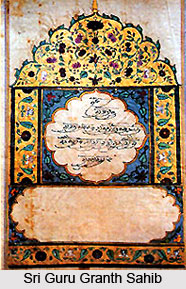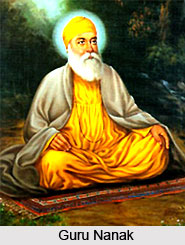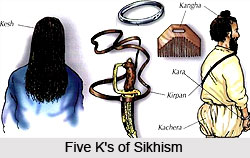 Concept of Sikhism is a faith made of principals based on humanity, equality, tranquility, obedience, service, self-sacrifice, purity, justice and courage possesses a very unique perception. The goal of Sikhs is to build a close, loving relationship with God. Sikhs all over the world consider the Holy Book "Guru Granth Sahib" as their living Guru, as the source of spiritual instruction and guidance.
Concept of Sikhism is a faith made of principals based on humanity, equality, tranquility, obedience, service, self-sacrifice, purity, justice and courage possesses a very unique perception. The goal of Sikhs is to build a close, loving relationship with God. Sikhs all over the world consider the Holy Book "Guru Granth Sahib" as their living Guru, as the source of spiritual instruction and guidance.
Concept of God in Sikhism
Sikhs believe in a single, formless God with many names, who can be known through meditation. The highest entity can be variously named as "Wahe Guru", Kartar (creator), Akal (eternal), Satt-nama (the holy name). He is also known as Allah, Khuda, Karim (benevolent), rahim (merciful) and Sahib (Lord). For His devotees He is dayalu (kind) and Kripalu (compassionate). They trust that God cannot take human form.
Spirituality in Sikhism
 Sikhism teaches strict monotheism. It teaches that Maya is the creative manifestation of God, but is also the source of five traditional evils in man, namely, Kama (passion), Krodh (anger), lobha (greed), moha (infatuation) and ahamkara (egoity). These can be removed through prayer, meditation and social service.
Sikhism teaches strict monotheism. It teaches that Maya is the creative manifestation of God, but is also the source of five traditional evils in man, namely, Kama (passion), Krodh (anger), lobha (greed), moha (infatuation) and ahamkara (egoity). These can be removed through prayer, meditation and social service.
Sikhism says the goal of human life is to break the cycle of birth and death and merge with God. This can be accomplished by following the teachings of the Guru, meditation on the Holy Name and performance of acts of service and charity. It preaches the devotee must live in the world yet keep his mind pure. He must be a soldier, a scholar or a saint.
Vand Chhako, sharing with others is also a social responsibility. The individual is expected to help others in need through charity. Seva, community service is also an integral part of Sikhism. The free community kitchen (Langar) found at every Gurdwara and open to people of all religions is one expression of this community service.
Sikhism deems in rejection of all forms of blind rituals such as fasting, religious vegetarianism, pilgrimages, superstitions, yoga, as well as any form of idol worship. Sikhism rejects all distinctions of caste, creed, race or sex. It gives stress on the full equality of women, rejecting female infanticide, sati (wife burning), permitting widow remarriage and rejects purdah (women wearing veils).
 Five K"s in Sikhism
Five K"s in Sikhism
Every Sikh baptized as Khalsa vows to wear the Five "K`s, viz:
1. Kesh - uncut hair and beard, as given by God, to sustain him or her in higher consciousness; and a turban, the crown of spirituality.
2. Kangha - a wooden comb to properly groom the hair as a symbol of cleanliness.
3. Katchera - especially made cotton underwear as a reminder of the commitment to purity.
4. Kara - a steel circle, worn on the wrist, signifies a bondage to Truth and freedom from every other entanglement.
5. Kirpan - the sword, with which the Khalsa is committed to righteously defend the fine line of the Truth.
Khalsa System in Sikhism
One of the salient features of Sikhism is that there is a fusion of Bhakti and Shakti, and Khalsa is a symbol of a saint soldier. Khalsa vowed to have a daily spiritual practice of reading 5 banis (scriptures) Khalsa vowed to follow the basic tenants of Bana (uniform), Bani (scripture), Simran (meditative recitation), Seva (service). Khalsa also vows to refrain from any sexual relationships outside of marriage, and to refrain from taking meat, tobacco, alcohol, and all other intoxicants.
Sikhism teaches both Hindus and Muslims to practice their own faiths with a view to strict moral life and social service, without caring much for rituals and external observances.









